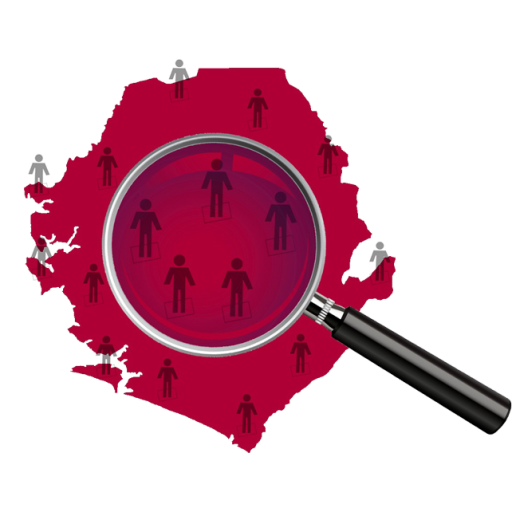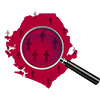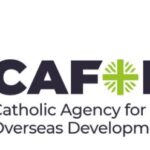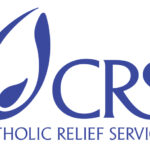Job Overview
-
Date PostedMarch 28, 2024
-
Location
-
Expiration dateApril 4, 2024
-
Experience5 Years
-
GenderBoth
-
QualificationBachelor Degree
-
OrganizationCAFOD
-
Required LanguagesEnglish
Job Description
Terms of Reference for a Combined Participatory Environmental Conservation and Livelihoods Needs Assessment in Big Water in Western Rural Area and Aberdeen Community in the Western Urban.
SUMMARY:
Contract type: Consultancy
Duration: Approx. 20-26 days in April – May 2024
Language: English
Location: Western Area Rural/Urban District, Sierra Leone
BACKGROUND
CAFOD, Conservation Society of Sierra Leone and Caritas Freetown are working together on a Conservation Livelihoods pilot project in the Western Area Districts (Rural and Urban). The idea of this pilot project is to implement an integrated project that meets local economic needs, through “conservation compatible livelihoods” activities that go beyond a do-no-harm approach to regenerate the environment in the forest reserved areas, coastal biodiversity protection in coastal communities and identify livelihoods needs that promotes conservation. The goal of the pilot project is to strengthen conservation and livelihood opportunities that will improve the well-being of vulnerable local communities while actively conserving the threatened ecosystems.
The pilot will target one forest-edge (Western Area National Park area) and one coastal community (Aberdeen) selected based on: their biodiversity and proximity to the national park; potential impact on local forest and marine habitats; and their two very different contexts, for generating the most learning from the pilot.
The pilot project is a collaboration among 3 organizations – one with a conservation focus (Conservation Society of Sierra Leone) and two with a community development and livelihoods focus (Caritas Freetown and CAFOD). We hope that each of the organizations can bring their own unique technical expertise and experience, to develop an integrated approach that combines environmental conservation and livelihood needs development perspectives and practices.
Expected project outcomes:
- Evidence-based knowledge, attitudes and practices (KAP) contributing positively or negatively to the ecosystem of the WAP-NP and identification of alternative sustainable conservation livelihoods of the population.
- Increased awareness in communities concerning linkages between conservation and livelihoods to improve economic and environmental benefits for WAP-NP communities.
- Promote improved conservation and management of WAP-NP through restoration of at least 10 hectares of degraded habitats, capacity building, and support the implementation of climate resilient livelihood initiatives.
SCOPE AND PURPOSE OF THE CONSULTANCY
The objective of this consultancy is to undertake a combined participatory environmental conservation and livelihoods needs assessment, which the Conservation Livelihoods project partners can use to identify viable and sustainable “conservation livelihoods” options for poor households in these communities, in 2 pilot communities in the Western Area Urban and Rural Districts. There is a strong focus on learning from the process and developing tools and guidance that can be used in similar projects in future and help to inform in designing future proposals.
The consultant, working in close collaboration with project staff from CAFOD, CS-SL and Caritas Freetown, will lead on the development and training, of simple integrated environment and livelihoods assessment tools and guidance to develop appropriate conservation livelihoods activities. Assessment of the species and habitat, climate vulnerability and potential for environmental restoration, will be done alongside community needs assessment and livelihoods viability assessment.
Here are the proposed activities that the consultant would lead on, with support from the 3 organisations:
- Desk review of existing conservation livelihoods approaches and assessment tools/methods.
- Design and testing of participatory conservation livelihoods assessment tools and approaches.
- Conduct community participatory assessment on challenges and opportunities related to livelihoods, natural resource management and governance, and wildlife/habitat conservation.
- Community and project team validation of participatory assessment findings
- Final assessment report and recommendations.
- After action review of the tools and processes and capturing recommendations for future improvements.
The final methodology and process will be agreed between the consultant and project team as part of the inception report.
OUTPUTS
The outputs will be in English. The expected outputs are:
- An inception plan (maximum 5 pages)
- A desk review of relevant existing work, literature and tools to inform the assessment.
- A package of tools and guidance for the combined conservation livelihoods assessments
- Data collected through the assessment.
- An assessment report, including analysis of data collected through the assessment and validations, and recommendations for the pilot project.
- An After-Action Review capturing feedback from community verification and project team feedback sessions, and reflections/recommendations on the tools and combined conservation livelihoods assessment process.
All data and materials collected during the process should be submitted to CS-SL, Caritas Freetown and CAFOD prior to the termination of the contract. The report and all background documentation will remain the property of CS-SL, Caritas Freetown and/or CAFOD.
TIMELINE
The dates for each activity and output will be confirmed between CS-SL, Caritas Freetown, CAFOD and the consultant during the inception phase, but below is the provisional timeline of expected activities:
- Inception report review and approval – April 2024
- Desk review – April 2024
- Tool development, testing and training of data collectors – April 2024
- Participatory conservation livelihoods assessment, analysis and validation – May 2024
- Final reporting and presenting learning/recommendations to project team – May 2024.
RESOURCES
- Fees for consultancy days, travel expenses for consultant/team and training of enumerators (to be agreed by negotiation) excluding fees for enumerators and validation workshop.
- Other expenses (fees for enumerators, printing of data collection tools and use of tablets) will be covered directly or reimbursed separately by the 3 organizations.
CONSULTANT PROFILE
- A Minimum of bachelor’s degree or Post Graduate qualification in Environmental Sciences, Development, or another relevant academic discipline.
- Relevant experience of at least 5 years in leading similar or related programmes work, especially around conservation and sustainable livelihoods.
- Significant previous experience of designing and implementing livelihoods and/or conservation/environmental assessments.
- Significant experience in Sierra Leone.
- Excellent English language skills. Krio skills an advantage.
- Demonstrate high level of professionalism.
- Excellent interpersonal skills, and ability to effectively interact with stakeholders from different socio-economic backgrounds.
- Ability to multi-task and work independently.
- Strong critical analysis skills and attention to detail.
- Ability to adhere to strict deadlines.
- Ability and willingness to travel in Sierra Leone, in the Western Area District.
APPLICATION PROCESS
Applications should include:
- A proposal providing an expression of interest, and relevant experience, and outlining the chosen evaluation and learning paper methodology, timeframe and summary budget in no more than 4 pages.
- A CV of consultant/team with two relevant references.
- Examples of past work may be requested from shortlisted candidates.
Applications for the implementation of the consultancy should be submitted by e-mail to csamura@cafod.org.uk with the subject Conservation Livelihoods Consultancy. The deadline for submission of applications is the 4th April 2024.
Online interviews with shortlisted candidates will be planned for the 9th – 12th April 2024.





